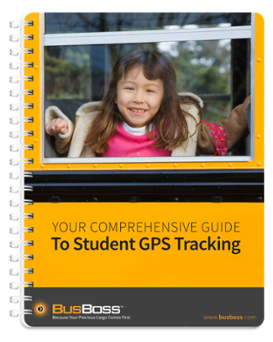Better School Bus Crash Reporting Procedures Can Make A Difficult Time Much Easier
published on January 21, 2020 by Sonia Mastros
school bus safety, school bus crash, school bus crash reporting
 While school buses are overwhelmingly safe for passengers, accidents do happen. No district or driver likes to think about the possibility of being in an accident, even a non-fatal one. However, when thousands of collisions involving a school bus happen every year, odds are that it will happen to many drivers during their career.
While school buses are overwhelmingly safe for passengers, accidents do happen. No district or driver likes to think about the possibility of being in an accident, even a non-fatal one. However, when thousands of collisions involving a school bus happen every year, odds are that it will happen to many drivers during their career.
The actions of the driver and district immediately following the accident are crucial, because they will set the tone for the investigation that follows. Poor school bus crash reporting policies can increase the likelihood of lawsuits, or criminal prosecution, while good reporting policies can help protect everyone involved.
Based on our extensive experience working with districts to improve their school bus transportation systems, here are some areas to focus on when crafting policies.
Four Critical Parts Of A Solid School Bus Crash Reporting Policy
1 - The driver always reports in to the transportation office, ASAP
Should a driver involved in an accident first contact the police, or the district? In most scenarios, they should contact the district. This should be one of their top priorities, after ensuring the safety of themselves and their passengers. In turn, the district should be responsible for reporting it to authorities.
The only exception would be a case of a clear medical emergency, in which case the driver should call 911 directly to request medical assistance, then report to the district.
2 - A senior transportation official should visit the scene
If the accident is any more serious than a fender-bender, it is a very good idea to have an authorized agent of the school on the scene, ready to take charge of the situation. This should be the transportation director, or a direct subordinate. The driver should not be left to their own devices - there's a very good chance they'll be too shaken (if not injured) by the accident to make major decisions.
It is also a good idea to send along a qualified mechanic to provide an assessment of any damage.
3 - Have a clear policy on the lines of communication
There shouldn't be any question about who contacts who during an emergency. One typical arrangement is that the transportation director contacts the district superintendent, who contacts individual schools, who in turn contact parents of their students.
4 - Ensure information can be easily accessed in an emergency
Say a student is injured and has to go to the hospital - can the transportation director or superintendent easily access their file, to advise the hospital of any medical issues? They need to. School bus crash reporting policies should include ways to securely access necessary confidential data.
How does your district handle crash reporting? Do you have clear policies? Let us know below!






